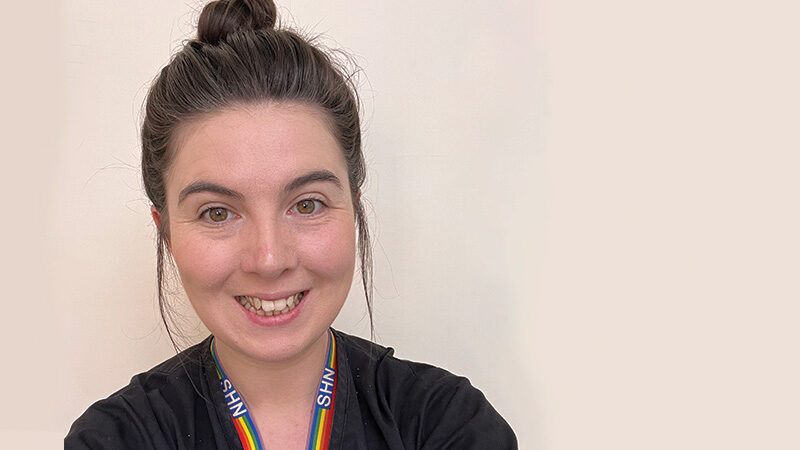
As part of International Prosthetics and Orthotics Day, our clinical lead orthotist Abby Paterson has explained about her career to date.
Why did you want to be an orthotist?
To become an orthotist, I studied a degree in prosthetics and orthotics, allowing me to graduate as a dual qualified clinician and either work within both fields or my preferred profession.
From a young age, I was very passionate about sports and closely followed the Olympics and Paralympics. I was always intrigued by the devices the athletes donned to allow them to compete so effectively and effortlessly and this interest influenced my decision to select my University Course and ultimately my career choice.
I had little Orthotic awareness on starting my degree however, as time progressed and my knowledge grew, I realised how interesting and rewarding a career in Orthotics was. The fast paced, hands-on, varied workload of an Orthotist was very appealing to me, as the role combines both a clinical and technical skillset.
I loved that I would be able to assess, prescribe and manufacture the devices provided to our patients, allowing me to follow their full treatment journey.
Day-to-day tasks?
Working as an Orthotist, no day is the same. We see a large caseload of different patient groups who may present with Neurological conditions, Neuromuscular conditions, or Biomechanical problems. We assess the patient’s presenting condition and aim to reduce pain, improve function or improve mobility by prescribing and supplying Orthotic devices that support, stabilise or relieve pressure on the different joints of the body.
We work independently and as part of the larger AHP workforce, carrying out joint appointments and discussions to ensure our patients treatment is as detailed and effective as possible. As part of our normal day, we will carry out clinical appointments, telephone appointments, ward visits and domiciliary visits.
Most fulfilling part of the job?
The satisfaction I feel when a device I have prescribed and supplied has helped to improve a patient’s pain, mobility or quality of life makes me enjoy coming to workday after day. I am very lucky to be in a job role that I love and never tire of. Working with my patients to work towards and achieve their set goals, really is so rewarding and reminds me how important my role is.
Find out more